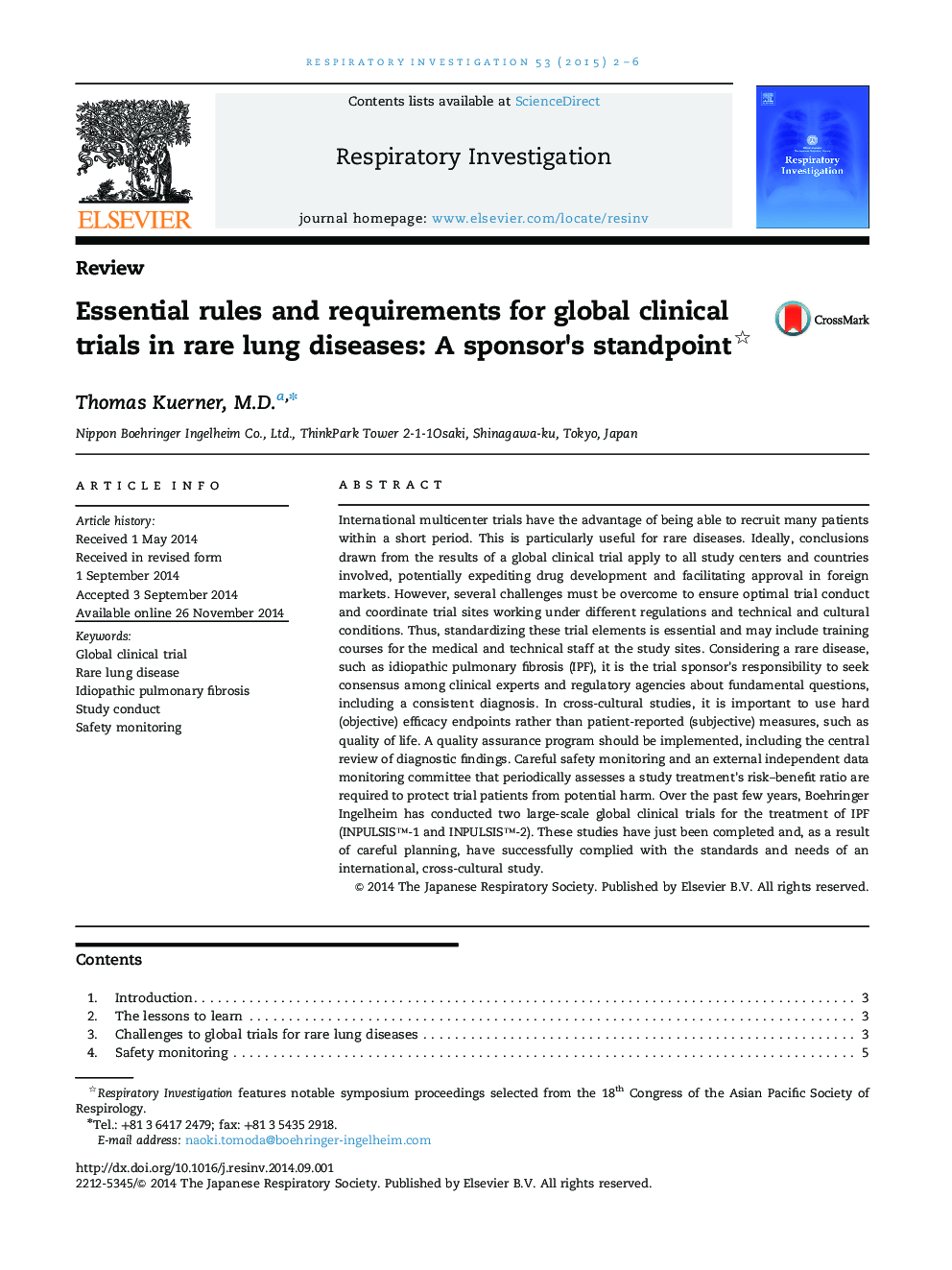| Article ID | Journal | Published Year | Pages | File Type |
|---|---|---|---|---|
| 10172064 | Respiratory Investigation | 2015 | 5 Pages |
Abstract
International multicenter trials have the advantage of being able to recruit many patients within a short period. This is particularly useful for rare diseases. Ideally, conclusions drawn from the results of a global clinical trial apply to all study centers and countries involved, potentially expediting drug development and facilitating approval in foreign markets. However, several challenges must be overcome to ensure optimal trial conduct and coordinate trial sites working under different regulations and technical and cultural conditions. Thus, standardizing these trial elements is essential and may include training courses for the medical and technical staff at the study sites. Considering a rare disease, such as idiopathic pulmonary fibrosis (IPF), it is the trial sponsor׳s responsibility to seek consensus among clinical experts and regulatory agencies about fundamental questions, including a consistent diagnosis. In cross-cultural studies, it is important to use hard (objective) efficacy endpoints rather than patient-reported (subjective) measures, such as quality of life. A quality assurance program should be implemented, including the central review of diagnostic findings. Careful safety monitoring and an external independent data monitoring committee that periodically assesses a study treatment׳s risk-benefit ratio are required to protect trial patients from potential harm. Over the past few years, Boehringer Ingelheim has conducted two large-scale global clinical trials for the treatment of IPF (INPULSISâ¢-1 and INPULSISâ¢-2). These studies have just been completed and, as a result of careful planning, have successfully complied with the standards and needs of an international, cross-cultural study.
Related Topics
Life Sciences
Immunology and Microbiology
Immunology and Microbiology (General)
Authors
Thomas M.D.,
